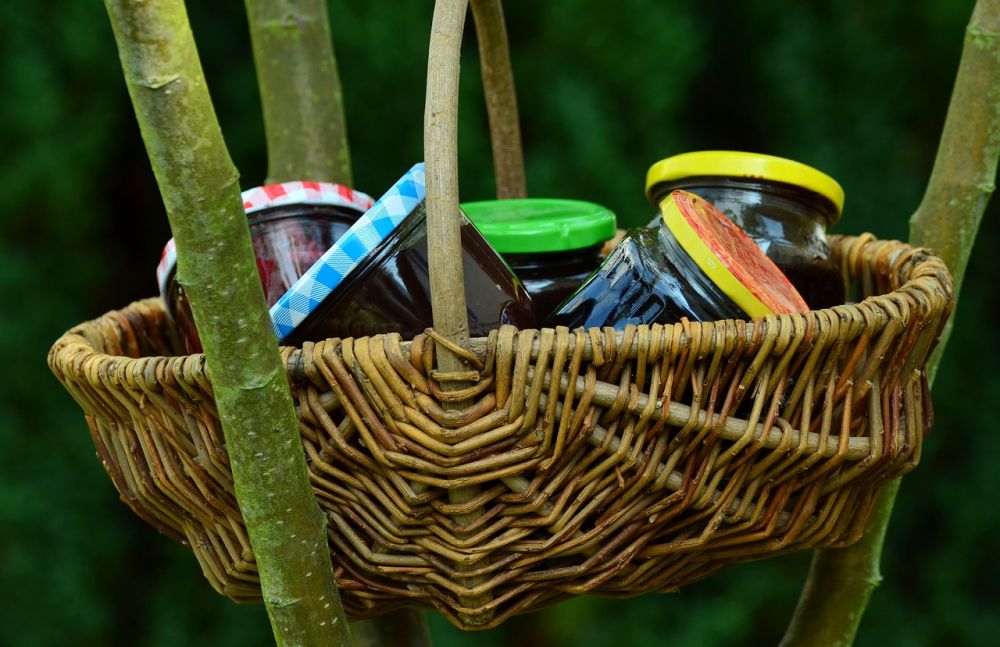Vegan Dessert: A Delicious and Nutritious Delight

Vegan desserts have gained immense popularity in recent years due to their ethical, health-conscious, and delicious nature. With a wide range of options available, vegan desserts offer a guilt-free indulgence for individuals following a plant-based lifestyle. In this article, we will explore the world of vegan desserts, their types, popularity, and delve into their unique characteristics and historical significance. So, get ready to tantalize your taste buds with these delectable treats.
An Overview of Vegan Dessert
Vegan desserts are sweet treats that are completely free from any animal products or by-products. They are made with plant-based ingredients like fruits, vegetables, nuts, seeds, grains, and alternative sweeteners such as maple syrup, coconut sugar, or agave nectar. By eliminating dairy, eggs, and other animal-derived ingredients, vegan desserts cater to those with dietary restrictions, including vegans, vegetarians, and individuals with lactose intolerance or egg allergies.
A Comprehensive Presentation of Vegan Dessert

Vegan desserts encompass a wide variety of options, ranging from traditional favorites with a vegan twist to innovative creations specifically crafted to cater to plant-based diets. Some popular types of vegan desserts include:
1. Plant-Based Pies and Tarts: From classic apple pie to creamy chocolate tart, vegan versions of these beloved desserts use alternatives like coconut oil or nut butters for a rich and luscious filling.
2. Decadent Vegan Cakes: Moist, fluffy, and bursting with flavor, vegan cakes are often made using substitutes like applesauce, flaxseed, or aquafaba (chickpea brine) that provide a similar texture to traditional cakes.
3. Indulgent Vegan Ice Cream: Creaminess abounds in vegan ice creams, which embrace coconut milk, almond milk, or soy milk as a base. Add a variety of flavors and toppings, and you have a dessert to rival any dairy-based ice cream.
4. Wholesome Vegan Cookies and Brownies: These treats use ingredients like almond flour, oat flour, or dates as natural sweeteners to create mouthwatering cookies and brownies that are both nutritious and delicious.
5. Nutty Bliss Balls and Energy Bars: Perfect for a quick pick-me-up or as pre/post-workout fuel, these bite-sized treats are packed with nuts, dried fruits, seeds, and superfood powders, providing a nutritious boost of energy.
The popularity of vegan desserts has soared, partly due to their versatility and ability to cater to various dietary preferences and needs. Whether you follow a plant-based lifestyle or simply desire a healthier alternative, vegan desserts offer a guilt-free way to satisfy your sweet tooth.
Quantitative Measurements of Vegan Dessert
When it comes to quantifying vegan desserts, it’s essential to consider the nutritional aspects. While these treats are often considered healthier alternatives, they can still vary in terms of calorie content, sugar levels, and macronutrient profiles. However, generally speaking, vegan desserts tend to be lower in saturated fats and cholesterol, while providing higher amounts of fiber, vitamins, minerals, and antioxidants.
For example, a traditional dairy-based chocolate cake often contains high levels of saturated fats and cholesterol from butter, milk, and eggs. In contrast, a vegan chocolate cake made with plant-based fats like avocado or coconut oil, plant-based milk, and flax eggs can offer higher amounts of monounsaturated fats and fiber. These healthy fats can help promote heart health and satiety.
Furthermore, vegan desserts often incorporate nutrient-dense ingredients like nuts, seeds, and fruits. Their natural sugars provide a more gradual release into the bloodstream, preventing a sugar rush and crash commonly associated with refined sugars. This can lead to better blood sugar control and improved overall wellness.
By incorporating a wide range of nutrient-packed ingredients, vegan desserts can offer a balanced and nourishing option when enjoyed in moderation.
How Different Vegan Desserts Distinguish Themselves
Although all vegan desserts share the commonality of being plant-based, they can still vary significantly in terms of taste, texture, and ingredients. The unique characteristics of different vegan desserts often depend on the following factors:
1. Base Ingredients: Vegan desserts utilize a variety of plant-based ingredients like tofu, cashews, bananas, avocados, or coconut milk as substitutes for dairy products. These ingredients can impart different flavors and textures to the final product.
2. Alternative Sweeteners: Instead of refined sugars, vegan desserts often incorporate natural sweeteners such as organic maple syrup, coconut sugar, or dates. Each sweetener possesses distinct flavor profiles and may impact the overall taste of the dessert.
3. Vegan Alternatives: Vegan desserts may use specific alternatives to traditional ingredients, such as flax eggs or aquafaba as egg replacers, almond milk or soy milk as dairy substitutes, or vegan butter as a non-dairy fat option. These alternatives play a crucial role in replicating the desired texture and taste of the original dessert.
4. Flavor Combinations: From classic flavors like vanilla and chocolate to more adventurous combinations such as lavender-infused lemon cheesecake or cardamom-spiced pear tart, vegan desserts embrace a wide array of flavor profiles to suit different palates.
The ability to customize vegan desserts based on personal preferences and dietary needs allows for a dynamic and diverse range of options. Whether you prefer a creamy, indulgent dessert or a light, refreshing treat, there is a vegan dessert to satisfy every craving.
A Historical Examination of the Pros and Cons of Vegan Dessert
The history of vegan desserts can be traced back to ancient civilizations that relied on plant-based ingredients for their sweet treats. However, in recent years, vegan desserts have gained widespread appreciation due to the growing awareness surrounding animal welfare, environmental concerns, and health-consciousness.
Advantages of Vegan Desserts:
1. Ethical Consumption: Vegan desserts align with the principles of ethical consumption by avoiding the use of animal-derived products, thereby reducing harm to animals and promoting a cruelty-free lifestyle.
2. Environmental Considerations: By reducing the demand for animal agriculture, vegan desserts contribute to minimizing greenhouse gas emissions, land degradation, water pollution, and deforestation associated with the meat and dairy industry.
3. Health Benefits: Vegan desserts tend to be lower in saturated fats and cholesterol compared to their non-vegan counterparts. They often incorporate nutrient-dense ingredients, contributing to increased fiber, antioxidants, and essential vitamins and minerals.
Disadvantages of Vegan Desserts:
1. Nutrient Balance: While vegan desserts can provide a range of nutrients, it is essential to ensure a balanced intake of macro and micronutrients. Relying solely on vegan desserts without considering a diverse plant-based diet may lead to nutrient deficiencies.
2. Availability and Accessibility: Depending on the location, access to vegan desserts and specialty ingredients may be limited, making it challenging for everyone to indulge in these treats.
3. Taste and Texture Variations: Vegan desserts may differ in taste and texture compared to their traditional counterparts due to the absence of animal-based ingredients. Some individuals may find the taste substitutions less appealing or textures slightly different.
Overall, the rise of vegan desserts highlights a shift towards conscious and mindful eating. With increasing awareness surrounding the environmental and health impacts of our food choices, vegan desserts serve as a delectable reminder that indulgence can coexist with compassion and sustainability.
In conclusion, vegan desserts offer a wide range of options to satisfy even the most discerning sweet tooth. From pies and cakes to ice creams and energy balls, these plant-based delights cater to various dietary preferences and nutritional needs. By understanding the different types and characteristics of vegan desserts, individuals can enjoy guilt-free indulgence while promoting their health and contributing to a more sustainable planet. So go ahead, explore the world of vegan desserts, and embark on a delightful journey of flavors and textures that will tempt and tantalize your taste buds. Enjoy!











